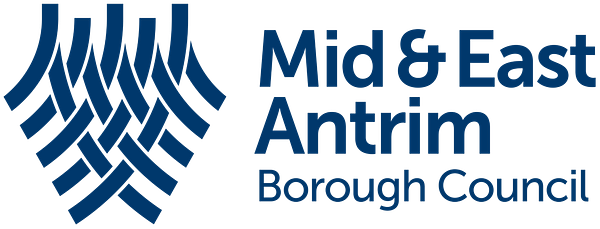Press release -
Pioneering youth programme remembers Srebrenica
Northern Ireland’s first programme reflecting on one of the world’s worst genocide atrocities is to inspire future generations that peace after conflict is possible.
In July 1995 the Srebrenica massacre saw Bosnian Serb forces kill more than 8,000 Bosnian Muslims who were under UN protection.
A special programme is to be delivered to 40 young leaders aged 18-24 in Mid and East Antrim. The project is supported by the European Union’s PEACE IV Programme, managed by the Special EU Programmes Body (SEUPB). It aims to promote positive relations characterised by respect where cultural diversity is celebrated and people can live, learn and socialise together, free from prejudice, hate and intolerance.
The Conflict Transformation and Srebrenica programme will see the group take part in a series of workshops, a residential, and a visit to Bosnia-Herzegovina to see and hear first hand the causes, impact and lessons of the Balkan conflict.
Mayor of Mid and East Antrim, Maureen Morrow launched the programme and said: “As a region coming out of conflict we have much to learn from Bosnia-Herzegovina and they have much to learn from us. There are so many similar challenges for Bosnia and Northern Ireland that we hope the young leaders participating will come back to reflect seriously on their learning and make a major contribution in the years to come as leaders in peace building and anti-prejudice work.
“This is an opportunity for young leaders to broaden their horizons and develop their skills and knowledge. We hope in doing so it will help them make an impact for the better here in their local communities.”
Director of Remembering Srebrenica UK, Amil Khan, said: “We are delighted to be managing this programme because we know at first hand the impact the visits will make, and how many issues Northern Ireland and Bosnia have in common after two decades of their peace processes.
“Issues such as managing diversity, trying to ensure power-sharing arrangements in government deliver for everyone, acknowledgement and dealing with the legacy of violence are as pertinent in Bosnia and Srebrenica as they are in Northern Ireland.”
The programme hopes to organise two visits, one in autumn 2019 and the other in spring 2020, ending with a commemoration event in July 2020 marking the 25th anniversary of the genocide.
Match-funding for the programme has been provided by the Executive Office in Northern Ireland and the Department of Rural and Community Development in Ireland.
For more information you can visit W: www.srebrenica.org.uk E: mea@srebrenica.org.uk or contact Amil Khan T: 01214543343 or Peter Osborne T: 07803717930
Topics
- County council issues
Categories
- mayor
- #ourmea
- economic development
Regions
- Antrim
- For Mid and East Antrim Borough Council media enquiries T: 028 2563 5037 E: communications@midandeastantrim.gov.uk
- Join Mid and East Antrim Borough Council on Facebook or follow us on Twitter
- The Special EU Programmes Body is a North/South Implementation Body sponsored by the Department of Finance in Northern Ireland and the Department of Public Expenditure and Reform in Ireland. It is responsible for managing two EU Structural Funds Programmes, PEACE IV and INTERREG VA which are designed to enhance cross-border co-operation, promote reconciliation and create a more peaceful and prosperous society. The Programmes operate within a clearly defined area including Northern Ireland, the Border Region of Ireland and in the case of INTERREG VA, Western Scotland. The PEACE IV Programme has a value of €270 million and aims to promote peace and reconciliation in Northern Ireland and the Border Region of Ireland. For more information on the SEUPB please visit www.seupb.eu
- About the genocide in Srebrenica: On 11 July 1995, Bosnian Serb General Ratko Mladić and his forces seized the eastern Bosnian town of Srebrenica, which had been declared a UN “safe zone” in 1993. Throughout the following week, over 8,000 Bosnian Muslim men and boys would be murdered simply because of their religious identity. Mladić’s forces systematically separated men and boys (as young as 12 years old) from the women, and took them away to be killed. Women and girls were subjected to inhumane treatment, and in many cases, sexual violence. Rape was used to destabilise and terrorise the local population throughout the 1992 – 1995 genocide. It is estimated that between 20,000 – 50,000 women were subjected to sexual violence in Bosnia during the genocide. Both the International Criminal Court and the International Criminal Tribunal for the former Yugoslavia have ruled Srebrenica a genocide. In March 2017, Ratko Mladić was found guilty of the genocide at Srebrenica and was sentenced to life imprisonment. In 2009 the European Parliament passed a resolution calling for all European countries to commemorate Srebrenica Memorial Day on 11 July each year.
- Remembering Srebrenica UK: The charity is part-funded by the Ministry of Housing, Communities and Local Government and supported by the Foreign and Commonwealth Office and the Prime Minister. It is committed to sending individuals on its ‘Lessons from Srebrenica’ educational visits programme. Each delegate pledges to carry out an activity on their return to the UK. These are designed to raise awareness of the risks of hatred, racism and intolerance, using Srebrenica as an example of an integrated society that disintegrated.
